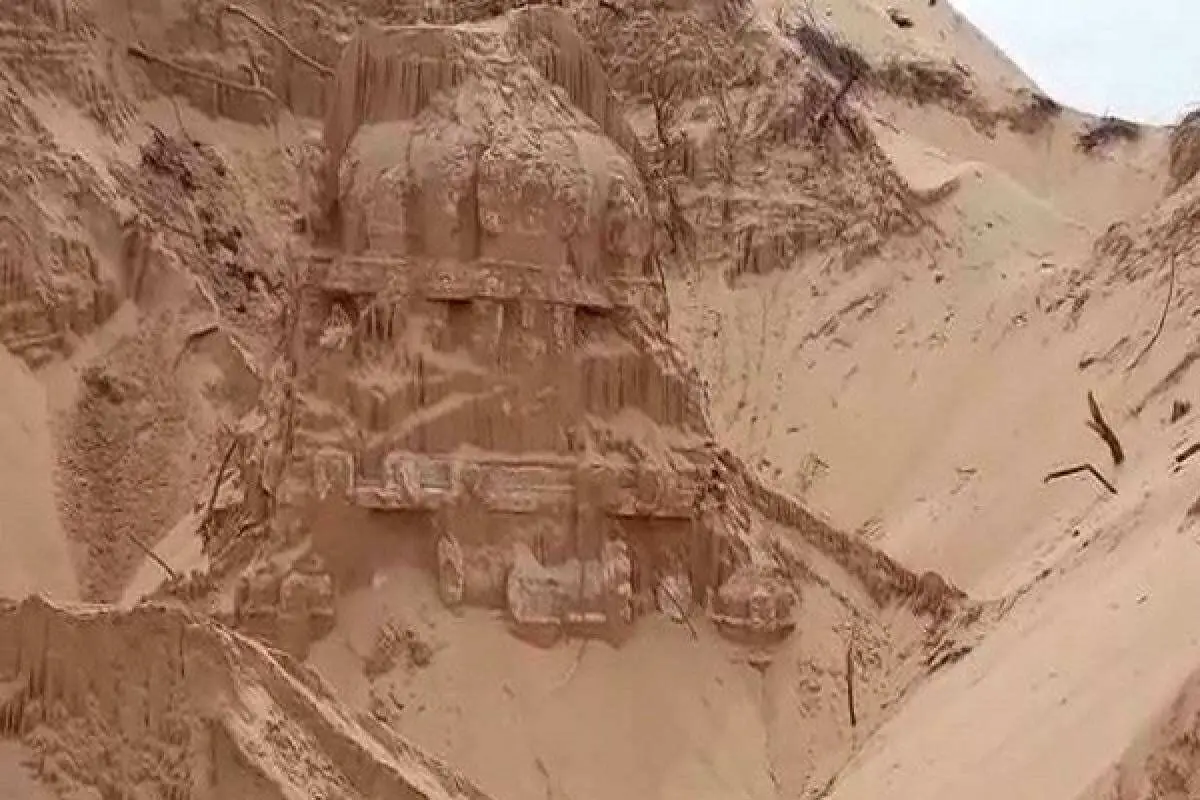Villagers from the Perumallapadu village in the Pradesh’s Nellore district of India have unearthed the 300-year-old Temple of Nageswara Swamy on the banks of the Penna River.
The temple became buried around 1850 when the village became submerged due to flooding. This caused the village to relocate and the resulting build-up of sand dunes in the vicinity swallowed the temple.
Due to Covid-19 lockdown, villagers who had heard tales from their elders about a lost temple decided to try and locate it themselves.
#Watch: A historic temple of Nageswara Swamy, buried in sand was unearthed while mining sand near Perumallapadu village under Chejerla Mandal, Nellore district of Andhra Pradesh. Locals believe that, the temple might have consecrated by Lord Parasurama. @NewsMeter_In pic.twitter.com/LSH7BfvWtH
— Dheeshma Puzhakkal (@dheeshmap) June 17, 2020
The temple is a brick-built temple dedicated to the Hindu deity, Lord Nageshwara (Shiva) and was built around 300 years ago along with the Kotiteertham temple and Sangam Sivalayam temple. Much of the temple complex remains buried, with only the Mukha Mantapam and some of the outlining buildings exposed.
The officials of the Archaeology and Endowments departments have announced that they plan to carry out works to further excavate and restore the temple, whilst respecting the sentiments of the villagers.





